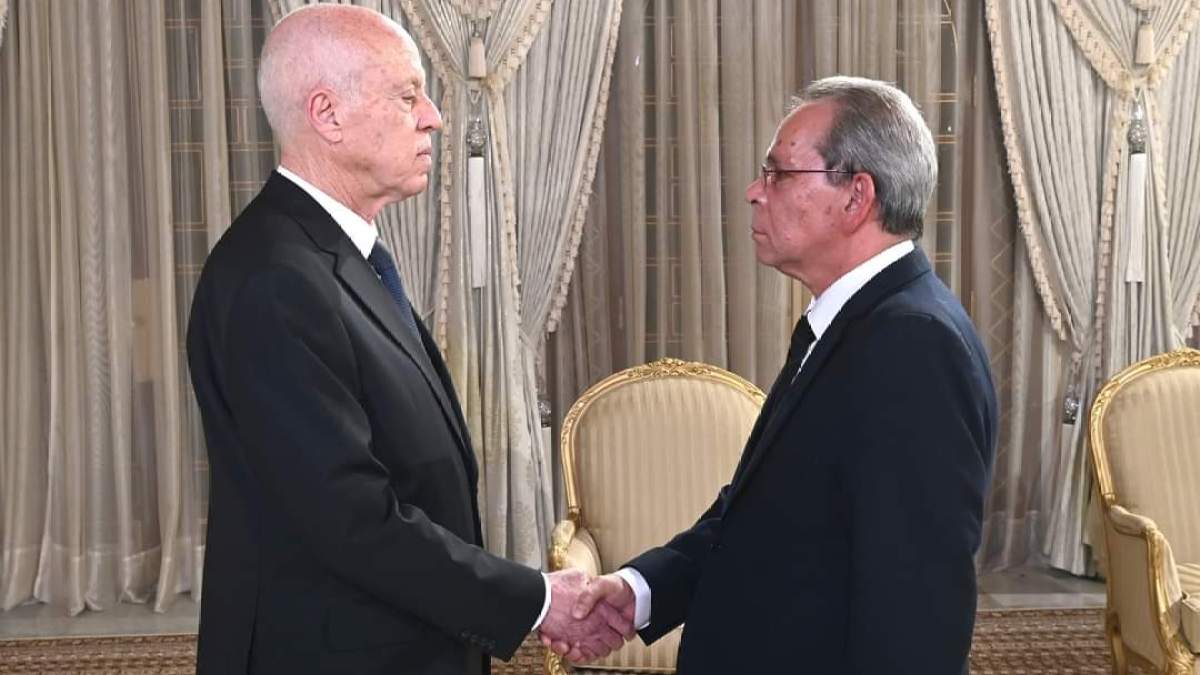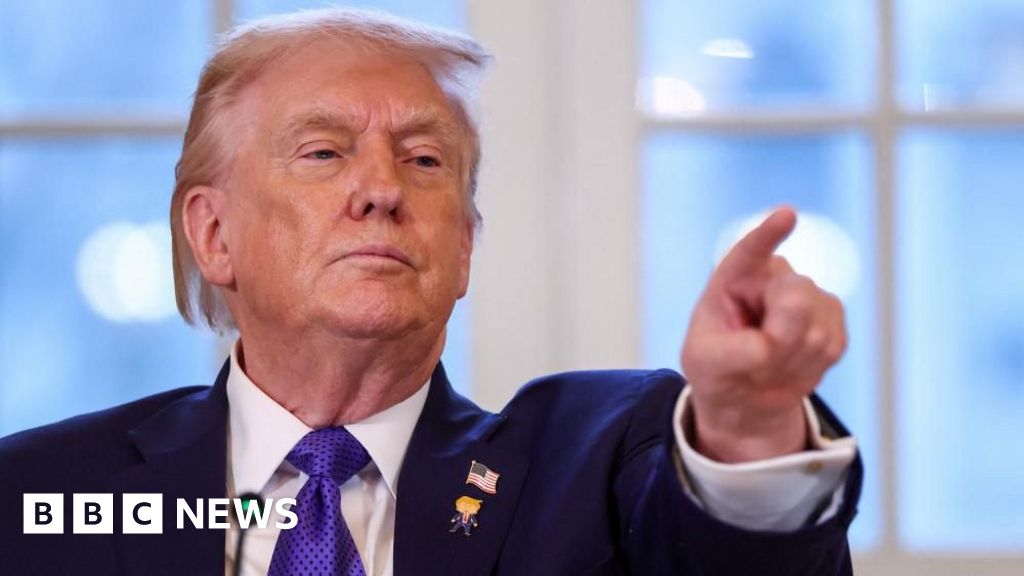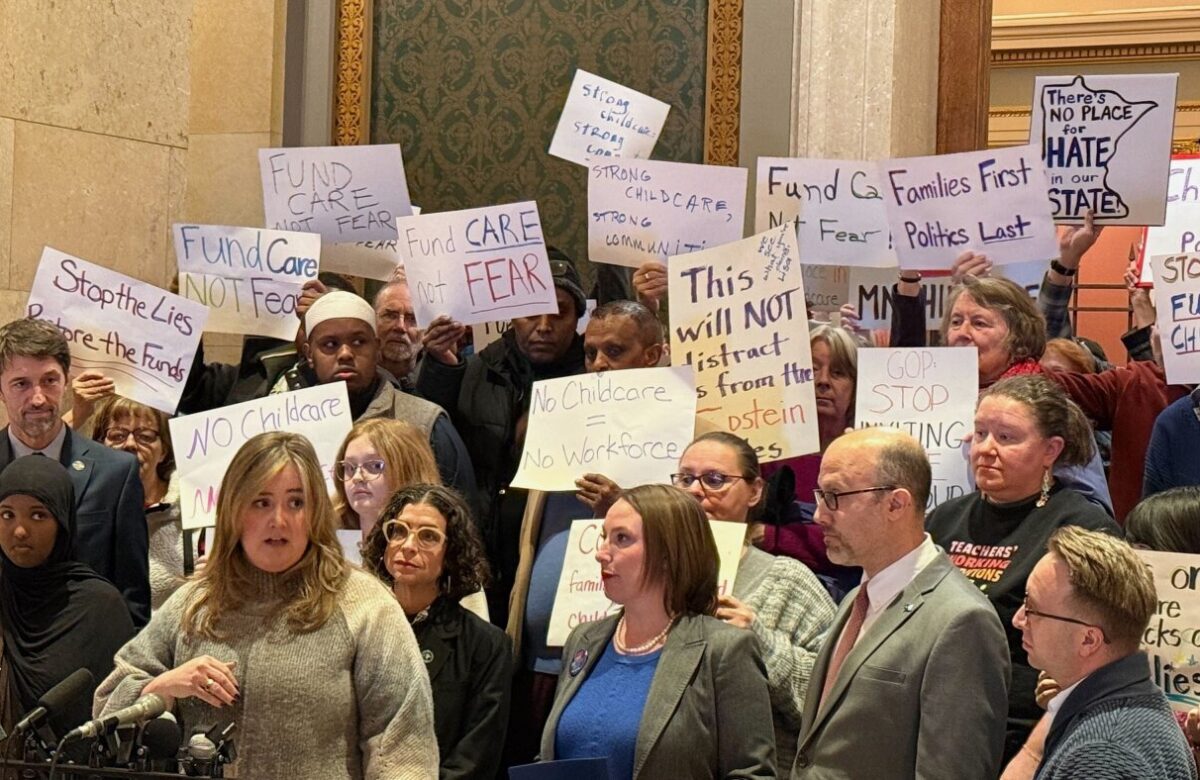
Tunisian government supporters in uproar over French documentary | News
- Politics
- March 7, 2024
- No Comment
- 143
Anger following a French documentary on Tunisia shedding a light on what it called the “poverty and dictatorship” of President Kais Saied’s rule has continued to be directed towards participants in the film after the country’s prime minister brought attention to the film last week.
Prime Minister Ahmed Hachani’s visit to Paris came a few days before the airing of Between Poverty and Dictatorship, the Great Step Backwards, by the French channel M6 on Sunday.
Speaking alongside his French counterpart Gabriel Attal on Thursday, Hachani decided to devote most of his comments to the film, bringing far more attention to it in the North African country than the filmmakers perhaps expected.
The film examined what it claimed were shrinking freedoms in Tunisia, the country’s struggling economy and the conditions facing sub-Saharan African refugees and migrants who exist at the margins of Tunisian society.
Hachani focused in his remarks on what he termed an “unfriendly act by our French friends” and said it was an attempt to insult Tunisia and harm bilateral relations between Tunis and Paris.
The prime minister’s inadvertent advertising has already led to more than 80,000 views on YouTube and a Tunisian media feverishly divided over the merits of the programme.
Attacks have been particularly directed towards one of the interviewees featured in the documentary, essayist Hatem Nafti, who was critical of the Tunisian government.
“The [furore has] been intense, and I’m not sure when it’s going to end,” Nafti said of a response that has taken in everything from vicious online attacks to stalwart defences of his positions.
“The thing is, I didn’t say anything that was new or anything that hadn’t been said before,” he said.
Much of the outrage, Nafti – who now lives in France – explained, stemmed not from anything he said, but that his comments were being heard by “white people”.
“Tunisia’s long had this thing where it measures its progress by the West,” he said. “We want to feel that we’re accepted there and treated as equals.”
Controversial topics
Nafti pointed to online criticism over his comments on the hostile treatment afforded sub-Saharan refugees who were transiting through Tunisia without paperwork.
“They couldn’t attack the accuracy of what I’d said, only that I’d said it. Likewise, [they couldn’t say anything about] the trials of the political prisoners arrested under Saied’s rule, or the economy which continues to struggle,” he said.
Many of Tunisia’s politicians, activists and critics of President Saied are currently serving prison sentences on charges ranging from corruption to plotting against state security, which political groups and human rights organisations say are falsely concocted by the government.
Among those imprisoned, sentenced to two consecutive sentences on charges of incitement and receiving foreign financing, is one of Saied’s sternest critics, the 82-year-old Rachid Ghannouchi, who has been on multiple hunger strikes since his incarceration.
Ghannouchi, the head of Ennahdha, a self-styled ‘Muslim Democrat’ party, and the former speaker of parliament, has vigorously denied the accusations against him. Rights groups have accused Saied of repressing political opposition.
“It’s confusing, because [since the broadcast] I’ve been attacked by both [political] Islamists because I said that Kais Saied ruled in the religious style of an Islamist, and those who say I’m on the side of the Islamists because I defended the political prisoners,” Nafti said. “Equally, I’ve been attacked for my comments on the treatment of the sub-Saharan [Africans]. Not because what I said was wrong, but because I said it.”
“I’ve also been accused of being one of those token Arabs that many European channels use to tell their viewers that they’re right and their country is wrong. That’s just not true. I’ve consistently opposed France’s position on Gaza.”
In February of last year, President Saied gave an incendiary speech, accusing the Black undocumented asylum seekers and refugees within Tunisia of being part of a “criminal plan to change the composition of the demographic landscape in Tunisia”.
A few months later, despite the tumult of racial violence the speech unleashed, the European Union signed a controversial pact on migration, with Tunisia accepting millions in aid and subsidies to “improve its border security” and play an enhanced role in “helping manage migration” across the Mediterranean.
“On the programme, I pointed to how immoral the migration pact the EU signed with Tunisia was, as well as how France’s own role in deterring migration was fundamentally wrong,” Nafti said.
Saied supporters’ shock
“I think many people had hoped that all of this had gone away, since it stopped being reported,” Hamza Meddeb, of the Carnegie Middle East Center, who is also based in France, said, referring to the government clampdown on critics within the media and the subsequent self-censorship of the press. “Now, not only were they seeing it being reported, they were seeing it being reported in France.”
Meddeb continued, outlining the shock many of Saied’s supporters may have felt on seeing their claims for the country systematically dismantled by a foreign media outlet. “Really, they didn’t say anything new. All their claims were measured and objective. There was nothing here but a mirror to a dirty reality.”
“I think the reaction to this has highlighted two things,” he said. “Firstly, the absolute fragility of Saied’s regime. It exposed what most people already knew, that they have no solution for the country. Secondly, the extent of the criticism has highlighted the extent of the growing anti-Western feeling in Tunisia.”
That sentiment did not start with the war with Gaza, he caveated. It came before it, as unease grew over how unevenly the gains of the 2011 revolution had been distributed.
However, since Israel’s war on Gaza, “the West’s claims to care about human rights and the rule of law have been shown up as untrue”.
And for now, there remains the fallout from a late-night documentary that few expected to watch.
“It’s not good right now,” Nafti said. “But it’s what I’ve been saying consistently in all my books and articles. I have no regrets, none at all.”
#Tunisian #government #supporters #uproar #French #documentary #News









